This website uses cookies so that we can provide you with the best user experience possible. Cookie information is stored in your browser and performs functions such as recognising you when you return to our website and helping our team to understand which sections of the website you find most interesting and useful.
Home Care In Alton, UT

They say that your golden years are the best years of your life. For most older Americans, that's how it should be - a time to relax, reflect, and live life in a familiar place. After all, senior citizens in the U.S. have worked tirelessly to build a better economy, serve their communities, and raise families.
However, as seniors grow older, completing daily tasks like showering and enjoying activities such as visiting the historic Lyman Trumbull House gets harder without someone by their side. Unfortunately, many older Americans aren't able to rely on their adult children for help. The reality in today's world is that family members do not have the skills or time to dedicate to caring for their parents. That's where Always Best Care Senior Services comes in.
Our in-home care services are for people who prefer to stay at home as they grow older but need ongoing care that family or friends cannot provide. More and more older adults prefer to live far away from long-term, institutionalized facilities and closer to the place where they feel most comfortable - their home. Home care in Alton, UT is a safe, effective way to give your loved ones the care they need when they need it the most.

 Home Care Services
Home Care Services
- Home Care in Alton, UT
- The Always Best Care Difference
- Types of In-home Care in Alton, UT
- Benefits of Home Care in Alton, UT
- Aging in Place: The Preferred Choice for Most Seniors
- Affordable Care Plans
- Compassionate Care. Trusted Caregivers
- Assisted Living Referral Services
- Taking the First Step with Always Best Care
 Service Areas
Service Areas
The Always Best Care Difference
Since 1996, Always Best Care has provided non-medical in-home care for seniors to help them maintain a healthy lifestyle as they get older. We are proud to have helped more than 25,000 seniors maintain higher levels of dignity and respect. We focus on providing seniors with the highest level of in-home care available so that they may live happily and independently.
Unlike some senior care companies, we genuinely want to be included in our clients' lives. We believe that personalized care is always the better option over a "one size fits all" approach. To make sure our senior clients receive the best care possible, we pair them with compassionate caregivers who understand their unique needs. That way, they may provide care accordingly without compromising their wellbeing.
The Always Best Care difference lies in life's little moments - where compassionate care and trustworthy experience come together to help seniors live a fruitful, healthy life. Whether you are an aging adult that can't quite keep up with life's daily tasks or the child of a senior who needs regular in-home services, Always Best Care is here to help.
“Emily and I (Nolan) are very grateful you all gave us the opportunity to work”
“I have used this company for a few of my residents. They take such good”
“I can’t say enough about Always Best Care. Henry and his staff was there from”
“They were wonderful watching my husband why I had to work stayed right with him”
“I work with Always Best Care and it's been an amazing experience for me. I”
“Amazing staff! I am so glad to have found Always Best Care, it is a”
“I’m so glad we found Always Best Care to help our family take care of”
“I have used the services of Always Best Care since Sept. 2021. I have been”
“Always Best Care is amazing! All of the caregivers are professional and provide the best”
“Great staff. Working around my schedule and always there when I need them.”
“Always best care has the most genuine team I’ve ever seen. They go above and”
“Always best care has the most genuine team I’ve ever seen. They go above and”
“They really care about their clients and staff, fast turnaround and superb care”
“The owners and staff at Always Best Care are so professional and friendly! With aging”
“The staff are exceptional and truly have their patients best interest in mind. Grateful to”
“Always Best Care Senior Services have organized and caring faculty and staff. They genuinely care”
“Great place to work. They are very helpful and also fast to respond to any”
“I'm so happy to have Always Best Care as a resource for us when we”
“Great to work with, caring, compassionate and willing to work with different situations! They take”
“The caregivers and staff at Always Best Care of St George are top notch. I”
“I'm so happy to have Always Best Care as a resource for us when we”
“Friendly and knowledgeable staff!”
“Emily and I (Nolan) are very grateful you all gave us the opportunity to work here. We had excellent experiences with management, caregivers, and our clients. We are thankful for your patience with our schedules and experience. We have learned a lot from being here, and we hope that our experiences from being here can be for our future benefit. We’d recommend working at ABC to our friends because of the great experiences we’ve had her. Emily and Nolan”
“I have used this company for a few of my residents. They take such good care of their clients and do such a good job at taking the time with each and every one of them. They go above and beyond for their clients. I’d definitely recommend them!”
“I can’t say enough about Always Best Care. Henry and his staff was there from the start to help me find a sitter. I was in a position where I needed immediate help and they came through. His staff was caring and responsible. They helped me through a very difficult time.”
“They were wonderful watching my husband why I had to work stayed right with him so he didn’t fall”
“I work with Always Best Care and it's been an amazing experience for me. I have learned so much about not only our patients we help, but the compassionate hard working people that are behind it all. I'm so grateful to work with such a caring, kind and helpful company they really do treat you like family❤. Not only are they giving back each day to patients who need them they are kind and caring to their employees as well. I love working for this company!”
“Amazing staff! I am so glad to have found Always Best Care, it is a blessing. I live 300 miles away from my elderly parents and cannot always travel, it’s comforting to know that my parents are in great hands and that I don’t have to worry about them. The staff is well trained and the management goes above and beyond to meet your needs. I think of them as angels in disguise!”
“I’m so glad we found Always Best Care to help our family take care of my grandpa! They have been amazing to work with. It’s such a relief to find a company that has open communication and cares about their clients and the clients family, too!”
“I have used the services of Always Best Care since Sept. 2021. I have been very pleased with the attentive care they have given my husband. They have been flexible, accommodating, and gone the extra mile helping with my husband's needs. As an example, I was away for the day and I was called by the caregiver that my husband was not doing well. I came home and we decided to take him to the emergency room. The caregiver came with us and stayed at the hospital for hours. He was released with the medication he needed for his recovery and she helped bring him home and get him settled before she left. This was way into the night and passed her normal working hours. One of my requests before hiring on a Senior Service was that the caregivers enjoyed their job and enjoyed working with challenging patients. I use their service six days a week and every caregiver has been kind, compassionate, and hard working. I really have been pleased.”
“Always Best Care is amazing! All of the caregivers are professional and provide the best care. I have tried multiple different agencies in the area for help with my grandmother and none have been as attentive and helpful as ABC”
“Great staff. Working around my schedule and always there when I need them.”
“Always best care has the most genuine team I’ve ever seen. They go above and beyond providing amazing care for the elderly with the help of trustworthy caregivers! They work as a team which makes the environment of there company so unique. Thank you always best care you have been amazing.”
“Always best care has the most genuine team I’ve ever seen. They go above and beyond providing amazing care for the elderly with the help of trustworthy caregivers! They work as a team which makes the environment of there company so unique. Thank you always best care you have been amazing.”
“They really care about their clients and staff, fast turnaround and superb care”
“The owners and staff at Always Best Care are so professional and friendly! With aging parents, it’s so nice to have the staff here to step in and help with caring for them. They are able to set everything up so quickly and provide the care when we need it! We are so happy we found out about them!!”
“The staff are exceptional and truly have their patients best interest in mind. Grateful to have found a company that will care for my loved ones in a way I would myself. Thank you!!!”
“Always Best Care Senior Services have organized and caring faculty and staff. They genuinely care for their clients and want to help them in the best way possible. We are so happy with the services they provide.”
“Great place to work. They are very helpful and also fast to respond to any questions that I have. Thank you ABC!”
“I'm so happy to have Always Best Care as a resource for us when we need more help with our aging parents. The office staff and owners are very professional and kind and they seem to be extremely careful in hiring staff that reflect the same values. I feel safe in trusting the caregivers. It's a huge relief to know that we have someone else who can help fill in when we can't be there or our parents just need more help than we can give.”
“Great to work with, caring, compassionate and willing to work with different situations! They take time to understand needs to accommodate the best way to help! They are trustworthy, dependable and a business you can count on!!????”
“The caregivers and staff at Always Best Care of St George are top notch. I highly recommend them for in home senior care services!”
“I'm so happy to have Always Best Care as a resource for us when we need more help with our aging parents. The office staff and owners are very professional and kind and they seem to be extremely careful in hiring staff that reflect the same values. I feel safe in trusting the caregivers. It's a huge relief to know that we have someone else who can help fill in when we can't be there or our parents just need more help than we can give.”
“Friendly and knowledgeable staff!”
What is Non-Medical Senior Care in Alton, UT?

Home is where the heart is. While that saying can sound a tad cliche, it is especially true for many seniors living in America. When given a choice, older adults most often prefer to grow older at home. An AARP study found that three out of four adults over the age of 50 want to stay in their homes and communities as they age.

When you begin to think about why, it makes sense. Home offers a sense of security, comfort, and familiarity.

The truth is, as we age, we begin to rely on others for help. When a family is too busy or lives too far away to fulfill this role, in-home senior care is often the best solution. Home care services allow seniors to enjoy personal independence while also receiving trustworthy assistance from a trained caregiver.

At Always Best Care, we offer a comprehensive range of home care services to help seniors stay healthy while they get the help they need to remain independent. As your senior loved one gets older, giving them the gift of senior care is one of the best ways to show your love, even if you live far away.
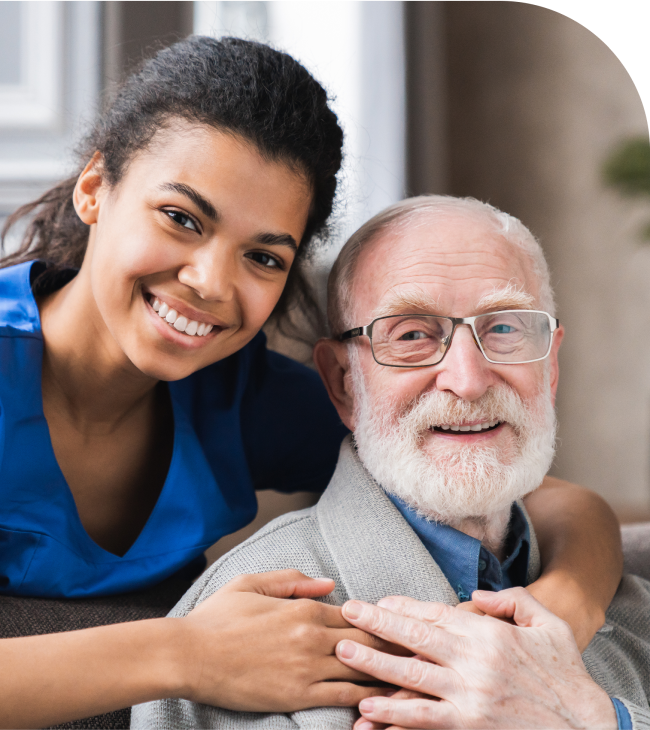
Types of Elderly Care in Alton, UT
To give our senior clients the best care possible, we offer a full spectrum of in-home care services:

Personal Care Services
If your senior loved one has specific care needs, our personal care services are a great choice to consider. Personal care includes the standard caregiving duties associated with companion care and includes help with tasks such as dressing and grooming. Personal care can also help individuals with chronic conditions like diabetes.
Common personal care services include assistance with:
- Eating
- Mobility Issues
- Incontinence
- Bathing
- Dressing
- Grooming
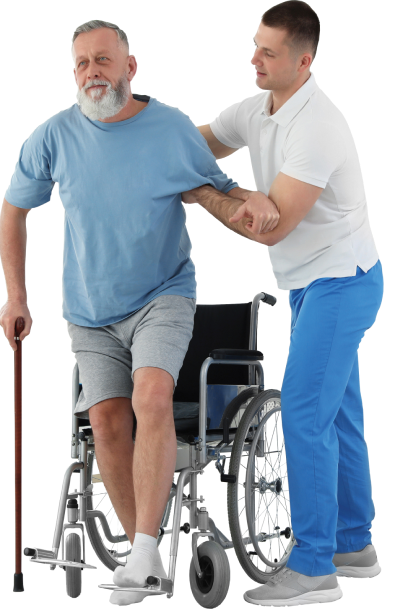

Home Helper Services
Sometimes, seniors need helpful reminders to maintain a high quality of life at home. If you or your senior has trouble with everyday tasks like cooking, our home helper services will be very beneficial.
Common home helper care services include assistance with:
- Medication Reminders
- Meal Preparation
- Pet Care
- Prescription Refills
- Morning Wake-Up
- Walking
- Reading
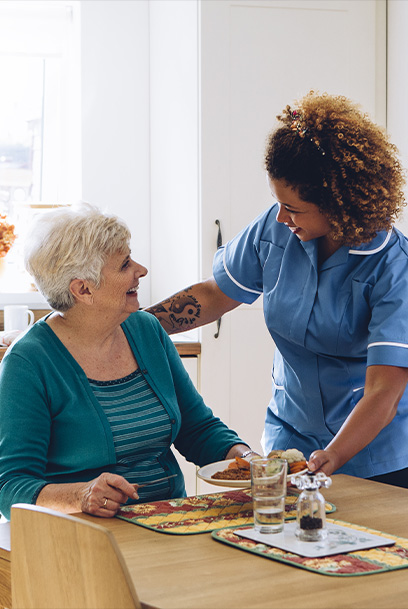

Companionship Services
Using this kind of care is a fantastic way to make life easier for you or your senior loved one. At Always Best Care, our talented caregivers often fill the role of a companion for seniors. That way, older adults can enjoy their favorite local activities, such as visiting Riverview Park with friends while also receiving the care they need daily or weekly.
Common companionship services include:
- Grocery Shopping
- Transportation to Appointments
- Nutritional Assistance
- Conversation
- Planning Outings
- Completing Errands
- Transportation to Community
- Events and Social Outings


Respite Care Services
According to AARP, more than 53 million adults living in the U.S. provide care to someone over 50 years old. Unfortunately, these caregivers experience stress, exhaustion, and even depression. Our respite care services help family caregivers address urgent obligations, spend time with their children, and enjoy nearby activities. Perhaps more importantly, respite care gives family members time to recharge and regroup. Taking personal time to de-stress reduces the risk of caregiver burnout. So, if you've always wanted to eat at the local Gentelin's On Broadway or visit Upper Alton Historic District, don't feel bad. Doing so is great for both you and your loved one.
At the end of the day, our goal is to become a valuable part of your senior's daily routine. That way, we may help give them the highest quality of life possible. We know that staying at home is important for your loved one, and we are here to help make sure that is possible.
If you have been on the fence about non-medical home care, there has never been a better time than now to give your senior the care, assistance, and companionship they deserve.
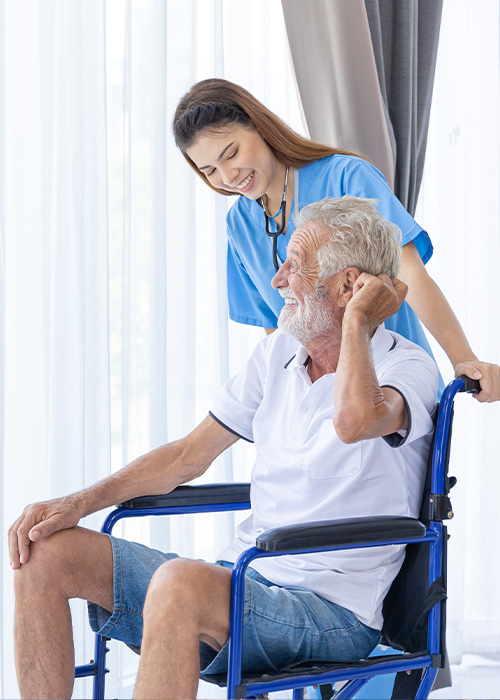
Benefits of Home Care in Alton, UT
Always Best Care in-home services are for older adults who prefer to stay at home but need ongoing care that friends and family cannot provide. In-home care is a safe, effective way for seniors to age gracefully in a familiar place and live independent, non-institutionalized lives. The benefits of non-medical home care are numerous. Here are just a few reasons to consider senior care services from Always Best Care:
Always Best Care offers a full array of care options for patients at all levels of health. With our trusted elderly care services, your loved one will receive the level of care necessary for them to enjoy the highest possible quality of life.
Request More Information
Aging in Place: The Preferred Choice for Most Seniors
While it's true that some seniors have complicated medical needs that prevent them from staying at home, aging in place is often the best arrangement for seniors and their families. With a trusted caregiver, seniors have the opportunity to live with a sense of dignity and do so as they see fit - something that is unavailable to many older people today.
In-home care makes it possible for millions of seniors to age in place every year. Rather than moving to a strange nursing home, seniors have the chance to stay at home where they feel the happiest and most comfortable.
Here are just a few of the reasons why older men and women prefer to age at home:
How much does a senior's home truly mean to them?
A study published by the American Society on Aging found that more than half of seniors say their home's emotional value means more than how much their home is worth in monetary value. It stands to reason, then, that a senior's home is where they want to grow old.
With the help of elderly care in Alton, UT, seniors don't have to age in a sterilized care facility. Instead, they can age gracefully in the place they want to be most: their home. In contrast, seniors who move to a long-term care facility must adapt to new environments, new people, and new systems that the facility implements. At this stage in life, this kind of drastic change can be more harmful than helpful.
Institutional care facilities like nursing homes often put large groups of people together to live in one location. On any given day, dozens of staff members and caregivers run in and out of these facilities. Being around so many new people in a relatively small living environment can be dangerous for a seniors' health and wellbeing. When you consider that thousands of seniors passed away in nursing homes during the COVID-19 pandemic, opting for in-home care is often a safer, healthier choice for seniors.
Aging in place has been shown to improve seniors' quality of life, which helps boost physical health and also helps insulate them from viral and bacterial risks found in elderly living facilities.
For many seniors, the ability to live independently with assistance from a caregiver is a priceless option. With in-home care, seniors experience a higher level of independence and freedom - much more so than in other settings like a nursing home. When a senior has the chance to age in place, they get to live life on their own terms, inside the house that they helped make into a home. More independence means more control over their personal lives, too, which leads to increased levels of fulfillment, happiness, and personal gratification. Over time, these positive feelings can manifest into a healthier, longer life.
More independence, a healthier life, and increased comfort are only a few benefits of aging in place. You have to take into consideration the role of cost and convenience. Simply put, it's usually easier and more affordable to help seniors age in place than it is to move them into an institutional care facility. According to the US Department of Housing and Urban Development, seniors who age in the comfort of their homes can save thousands of dollars per month.
In-home care services from Always Best Care, for instance, are often less expensive than long-term solutions, which can cost upwards of six figures per year. To make matters worse, many residential care facilities are reluctant to accept long-term care insurance and other types of payment assistance.
With Always Best Care's home care services, seniors and their families have a greater level of control over their care plans. In-home care gives seniors the chance to form a bond with a trusted caregiver and also receive unmatched care that is catered to their needs. In long-term care facilities, seniors and their loved ones have much less control over their care plan and have less of a say in who provides their care.
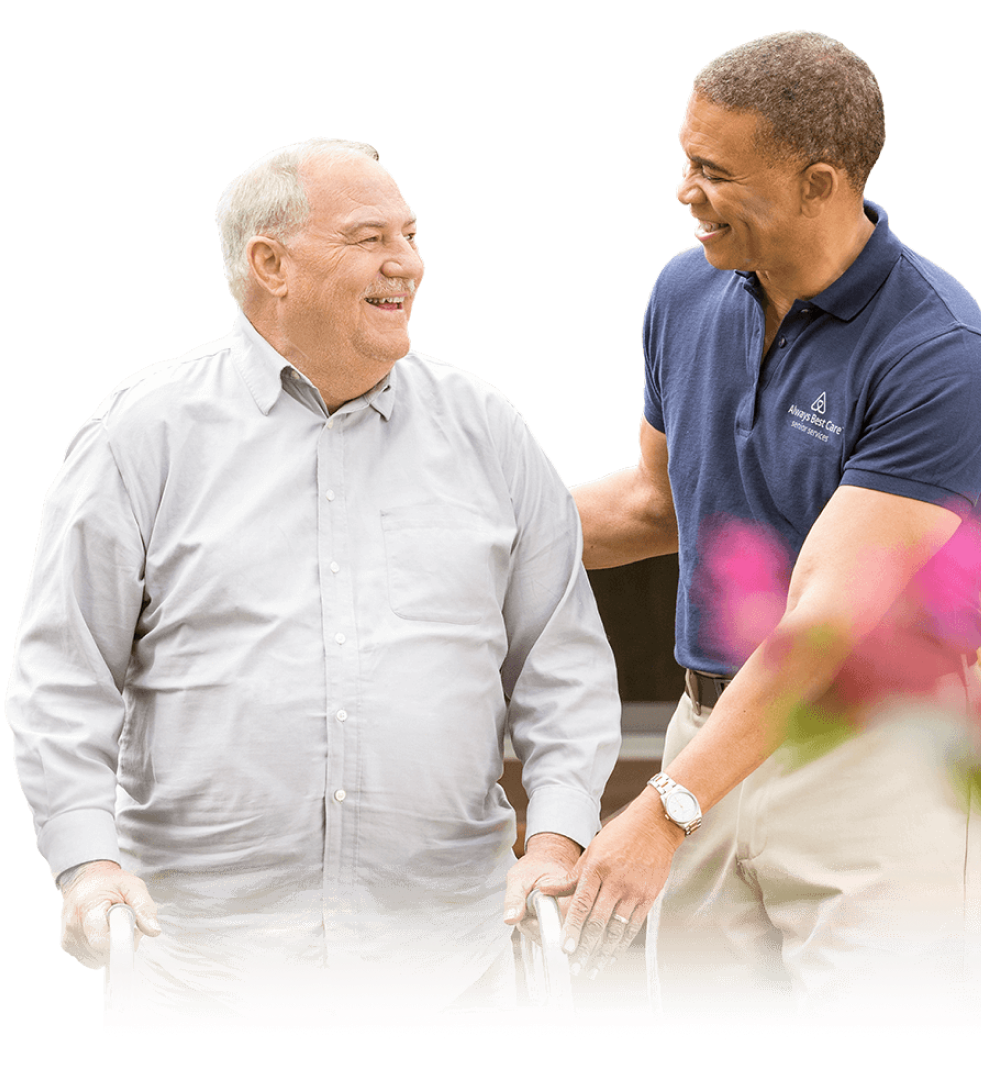
Affordable Care
In-home care is a valuable resource that empowers seniors to age in place on their own terms. However, a big concern for many families and their loved ones is how much in-home care costs. If you're worried that in-home care is too expensive, you may be pleasantly surprised to learn that it is one of the most affordable senior care arrangements available.
Typically, hiring an Always Best Care in-home caregiver for a few hours a week is more affordable than sending your loved one to a long-term care facility. This is true even for seniors with more complex care needs.
At Always Best Care, we will work closely with you and your family to develop a Care Plan that not only meets your care needs, but your budget requirements, too. Once we discover the level of care that you or your senior need, we develop an in-home care plan that you can afford.
In addition to our flexible care options, families should also consider the following resources to help offset potential home care costs:

Compassionate Care. Trusted Caregivers.
When you or your senior loved one needs assistance managing daily tasks at home, finding a qualified caregiver can be challenging. It takes a special kind of person to provide reliable care for your senior loved one. However, a caregiver's role involves more than meal preparation and medication reminders. Many seniors rely on their caregivers for companionship, too.
Our companion care services give seniors the chance to socialize in a safe environment and engage in activities at home. These important efforts boost morale and provide much-needed relief from repetitive daily routines. A one-on-one, engaging conversation can sharpen seniors' minds and give them something in which to be excited.
At Always Best Care, we only hire care providers that we would trust to care for our own loved ones. Our senior caregivers in Alton, UT understand how important it is to listen and communicate with their seniors. A seemingly small interaction, like a short hug goodbye, can make a major difference in a senior's day. Instead of battling against feelings of isolation, seniors begin to look forward to seeing their caregiver each week.
Understanding the nuances of senior care is just one of the reasons why our care providers are so great at their job.
Unlike some senior care companies, our caregivers must undergo extensive training before they work for Always Best Care. In addition, our caregivers receive ongoing training throughout the year. This training ensures that their standard of care matches up to the high standards we've come to expect. During this training, they will brush up on their communication skills, safety awareness, and symptom spotting. That way, your loved one receives the highest level of non-medical home care from day one.
Assisted Living Referral Services
While it's true that many seniors prefer to age at home, sometimes in-home care isn't the best fit. For those seniors and their families, choosing an assisted living facility makes more sense. Unfortunately, finding the optimal care facility is easier said than done in today's day and age. That's when Always Best Care's assisted living referral services begin to make a lot of sense.
Assisted living is a form of housing intended for seniors who require varying degrees of medical and personal attention. Accommodations may include single rooms, apartments, or shared living arrangements. Assisted living communities are typically designed to resemble a home-like environment and are physically constructed to encourage the independence of residents.
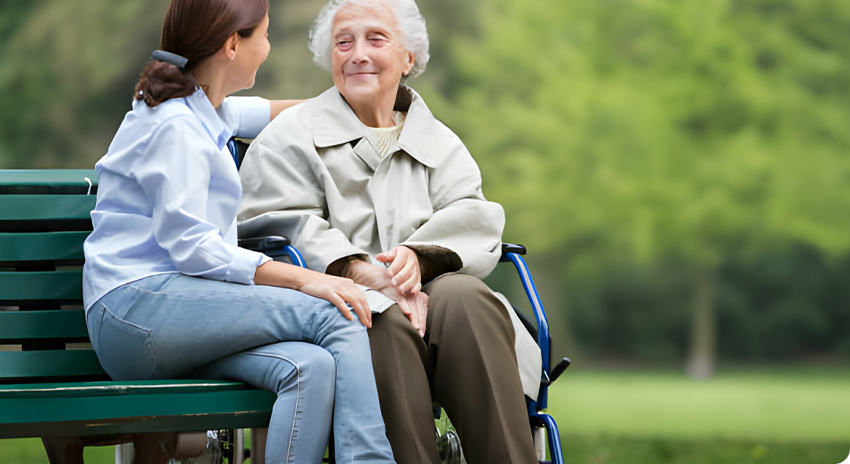
At assisted living communities, seniors receive help with daily activities such as bathing, dressing, and eating. They may also benefit from coordination of services with outside healthcare providers, and monitoring of resident activities to ensure their health, safety, and well-being. Caregivers who work at assisted living communities can also provide medication administration and personal care services for older adults.
Other services offered within assisted living communities can include some or all of the following:
- Housekeeping
- Laundry
- Recreational Activities
- Social Outings
- Emergency Medical Response
- Medication Monitoring
- Family Visitation
- Personal Care
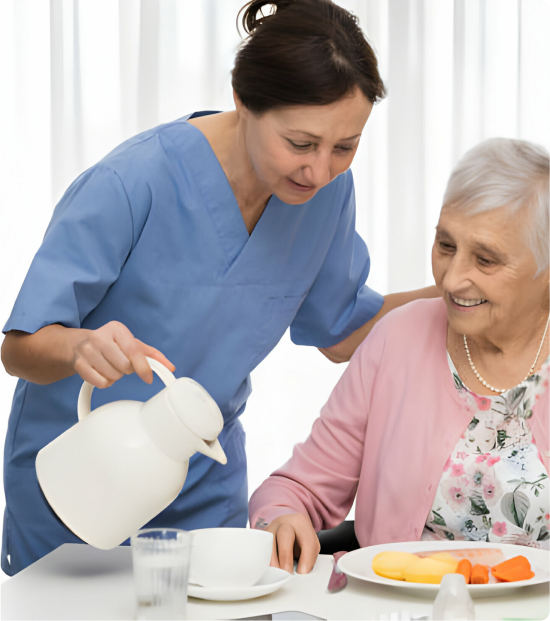
At Always Best Care, our representatives can match your senior's emotional, physical, and financial needs with viable assisted living communities nearby. Results are based on comparative data, so you can select the best choice for you or your loved one.
Always Best Care works closely with local senior living communities to gain valuable knowledge that we then use to help seniors and their loved ones make informed decisions. This information can include basic care and rent, resident availability, and services provided. Because Always Best Care is compensated by these communities, we provide senior living referral services at no extra cost to you.
Some of the most popular assisted living communities to consider in our area include the following:
- Evergreen Place: Supportive Living - Alton
- La Bella of Alton
- Burt Shelter Care Home
- Saint Clare's Villa
- BRIA of Alton
- Fosterburg Terrace
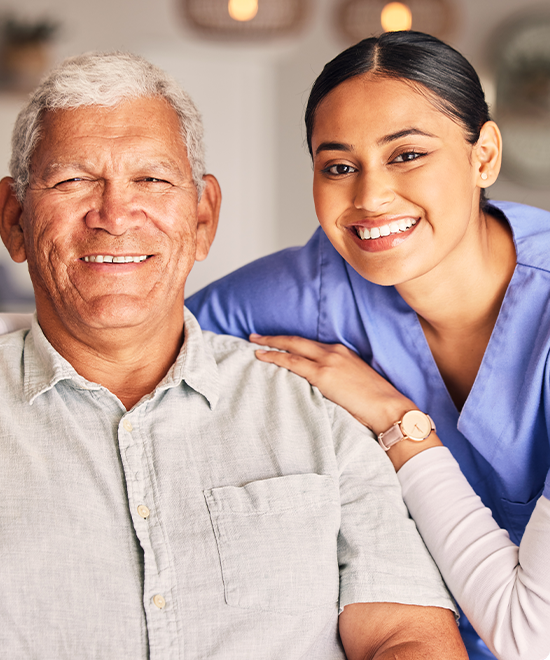
For many seniors, moving into a senior living community revolves around how and when they want to make a transition to more involved care. Some seniors are more proactive about transitioning to independent living. Others choose to remain home until their care needs or other requirements are satisfied. Remember - our staff is here to help. Contact our office today to learn more about assisted living communities and how we can find a facility that exceeds your expectations.
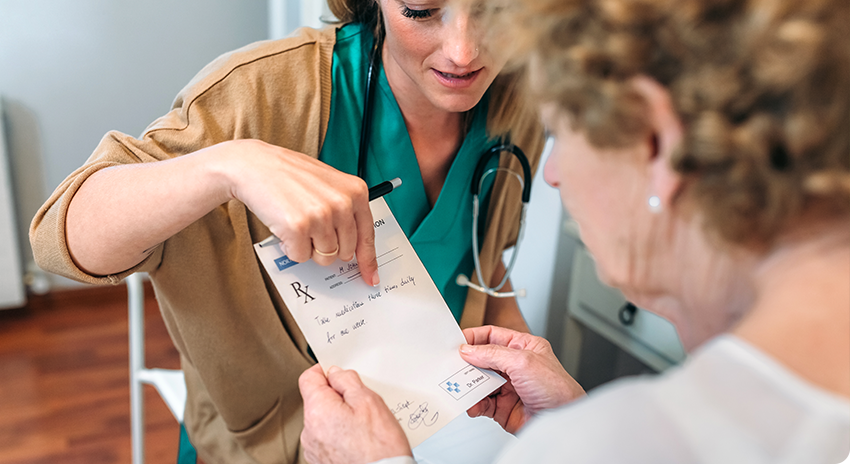
Taking the First Step with Always Best Care
The first step in getting quality in-home care starts with a personal consultation with an experienced Always Best Care Care Coordinator. This initial consultation is crucial for our team to learn more about you or your elderly loved one to discover the level of care required. Topics of this consultation typically include:
A discussion of your needs and how our trained caregivers can offer assistance in the most effective way

A draft of your care plan, which includes highly detailed notes and a framework for the care that you or your senior will receive

Discuss payment options and help coordinate billing with your insurance provider

Our caregivers are trained to spot changes that clients exhibit, like mental and physical decline. As your trusted senior care company, we will constantly assess and update your Care Plan to meet any new emotional, intellectual, physical, and emotional needs.
If you have never considered in-home care before, we understand that you and your family may have concerns about your Care Plan and its Care Coordinator. To help give you peace of mind, know that every team member and caregiver must undergo comprehensive training before being assigned to a Care Plan.
At the end of the day, we only hire the best of the best at Always Best Care. Whether you need home care in Alton, UT 24-hours a day or only need a respite for a couple of hours, we are here to serve you.
When you're ready, we encourage you to contact your local Always Best Care representative to set up a Care Consultation. Our Care Coordinators would be happy to meet with you in person to get to know you better, discuss your needs, and help put together a personalized Care Plan specific to your needs.

Latest News in Alton, UT
UT graduate Dr. O. Alton Barron aims to heal Austin musicians
Michael Barneshttps://www.statesman.com/story/news/2017/10/16/ut-graduate-dr-o-alton-barron-aims-to-heal-austin-musicians/10076567007/
Elvis Costello concert benefits the new Musician Treatment FoundationAustin is home to pioneering nonprofits, such as HAAM and SIMS, that serve the health needs of the music community. Add another: The Musician Treatment Foundation, which aims to heal vulnerable shoulders, elbows and hands, and kicks off with an Elvis Costello benefit concert Oct. 22 at the Paramount Theatre.We chatted about the project, which works with Dell Medical School and the Health Alliance for Austin Musicians, with its founder, Dr. O. Alton Barron, a...
Elvis Costello concert benefits the new Musician Treatment Foundation
Austin is home to pioneering nonprofits, such as HAAM and SIMS, that serve the health needs of the music community. Add another: The Musician Treatment Foundation, which aims to heal vulnerable shoulders, elbows and hands, and kicks off with an Elvis Costello benefit concert Oct. 22 at the Paramount Theatre.
We chatted about the project, which works with Dell Medical School and the Health Alliance for Austin Musicians, with its founder, Dr. O. Alton Barron, a University of Texas graduate who practices in New York City. Our exchange was edited lightly for length.
American-Statesman: How did treating musicians become a focus for you?
Dr. Barron: In 1996, I joined the oldest teaching hand surgery service in the country, Roosevelt Hospital, a few blocks from Lincoln Center, and we were the primary orthopedic shoulder, elbow and hand surgeons for the New York Philharmonic and Metropolitan Opera musicians. This naturally expanded to the Broadway musicians, and then on to jazz and rock ’n’ roll musicians, music schools, etc.
You are involved in so many efforts in the New York area, why this one and why here?
I love New York — the diversity, the energy, the streets, the belief that absolutely anything can happen for anyone. I have been deeply involved in all things New York, including co-founding Team Continuum, a cancer charity that raises money through the New York City Marathon and other races, and serving as a team doctor for Fordham University for 15 years.
But I’m a native Texan through and through, and my New York patients embrace that. I grew up in Sugarland when it was mostly farmland, but I’ve been swimming and water-skiing on Lake Travis for 50 years. I graduated from UT in engineering and then, before going to med school, had a house painting business in Austin, painting a few dozen homes. Our three kids, 15 and up, had all spent part of most summers with my parents out in Briarcliff on Lake Travis. My wife, a die-hard New Yorker, loves Austin as her own as well.
My only sibling, Cherie, from Wimberley, died of multiple myeloma at Breckenridge Hospital downtown in 2006, despite magnificent care. When Dell Medical School came into being, I was immediately struck by the need to be back in Austin and involved with Dell, and to also help care for my aging though vital parents.
My closest cousin, Thor, is an iconic and loved member of the Austin music scene, and we have shared much musically over the decades. He sustained a bad hand laceration and cut an important nerve in his index finger. He had no insurance but had frequent flyer miles from touring, so he flew to me and I repaired the nerve. In my two decades of experience, under- and uninsured musicians are the rule, not the exception, especially in Austin.
I then met the amazing Reenie Collins, the executive director of HAAM, and we brainstormed about my idea for the foundation and how it might dovetail with HAAM and other local efforts.
She made the point that they were reasonably successful getting primary care for their needful musicians, while securing specialty care, including orthopedic surgery, was much more difficult. She embraced my idea to provide and subsidize orthopedic upper-extremity care with the help of our foundation.
When you lived here, were you a fan of Austin music?
I was a huge fan of music. As a student from 1979 to ’83 and then after, we could and did go to “Austin City Limits,” because it was easy access with our student IDs where it was recorded in the communications building (on the UT campus, before the show moved to ACL Live). I think it only held a few hundred people. But the Broken Spoke, Armadillo World Headquarters, Hole in the Wall and many other venues were instrumental — no pun intended — in feeding my love of Austin music. To be able to give back to some of the very musicians I listened to and who so enhanced my life is a profound honor for me.
Will the foundation be based here? Will most of its early work be focused here?
Yes, and yes. The first priority will always be the Austin musicians, and money will always be available for them. After that, we will open ourselves up to other needful musicians from other towns, especially because we are creating the first upper-extremity surgeon network around the country, because our Austin musicians are always touring. We need the network of qualified, ethical, generous surgeons to provide continuity of care throughout the U.S. and even beyond. We are developing with the help of Force Therapeutics, the first digital platform for musicians to facilitate their care and rehab regardless of where they are touring.
What are the most common upper-extremity ailments for musicians?
In the shoulder, the most common problems that impact their playing are rotator cuff tears, bursitis and frozen shoulders. In the forearms and elbows, it is overuse strain from deconditioning and overuse via dramatically fluctuating use patterns, such as with rehearsals, recording sessions, recitals, but also lack of steady gigs.
Also, in the elbows, the tendonitis in the distal biceps tendon — front of the elbow — and the outside and inside of the elbow — tennis and golfers’ elbow, respectively. Also very common in the elbows is cubital tunnel syndrome — ulnar nerve compression in the elbow that greatly affects the finger dexterity and feeling. In the hands, it is most commonly tendonitis from overuse, called trigger fingers and de Quervain’s tenosynovitis. Also carpal tunnel syndrome — median nerve compression in the palm and wrist area.
Can you tell us — without violating patient privilege — about a particular musician’s case that made it possible for that artist to continue his or her work?
One is a concert pianist who broke her elbow and had a concert three weeks later. I had to use a technique that would allow her to return to playing in a week! The other: Mike Stern is a Grammy Award-winning jazz guitarist who had devastating nerve injuries to his right arm and hand, preventing almost all hand use and all playing. I did tendon transfers to just get him back on tour; not perfect and we have more surgery to do, but he got back to what he loved and desperately needed.
Disclaimer:


 385-444-7026
385-444-7026





